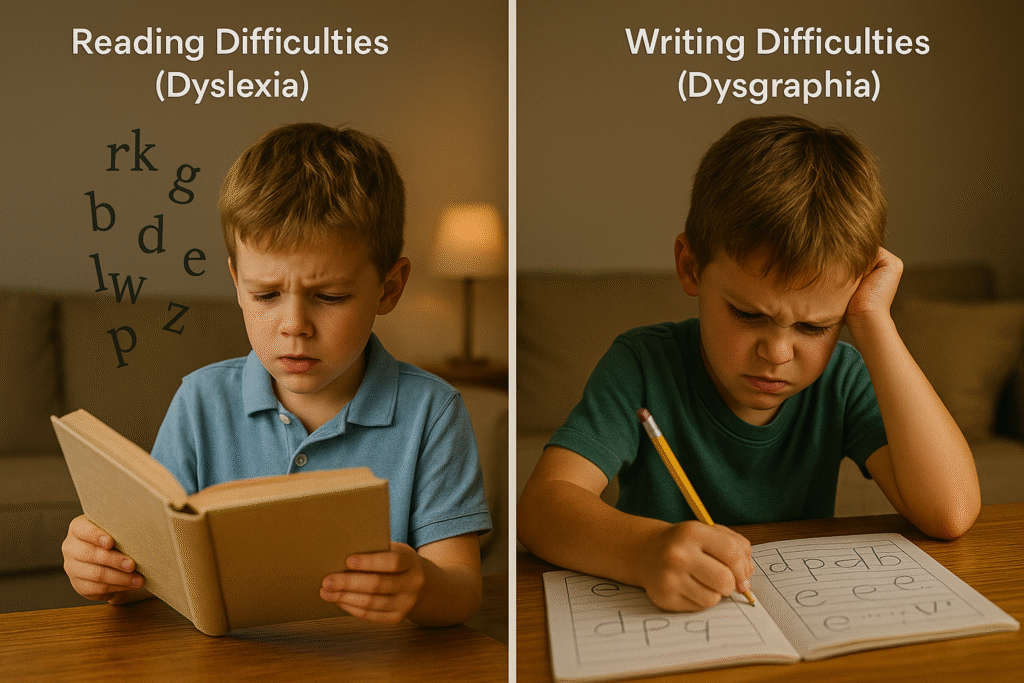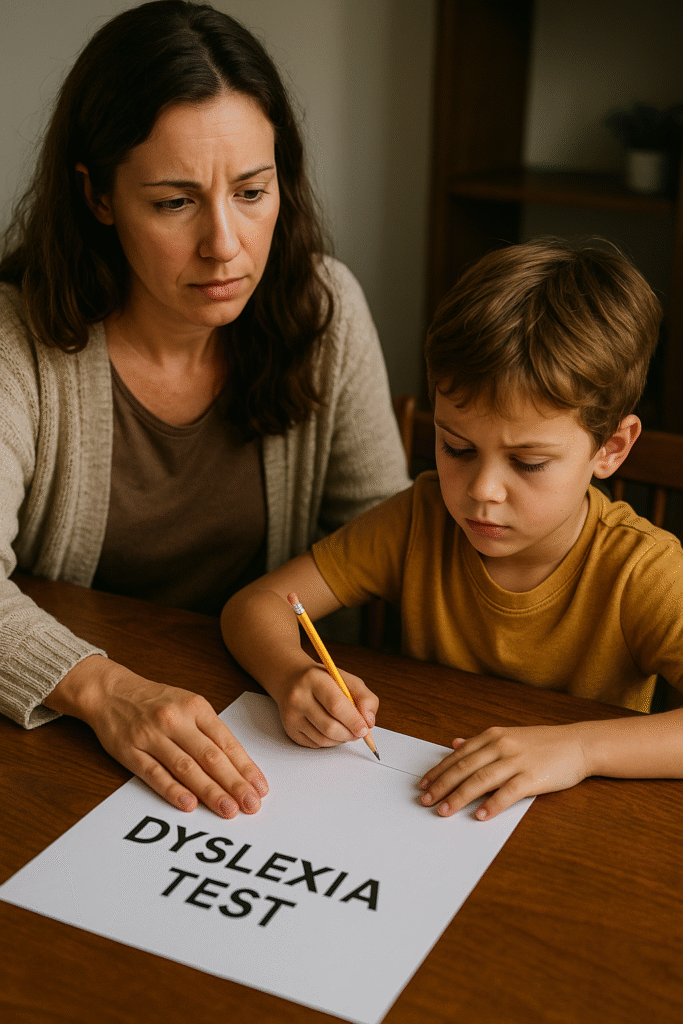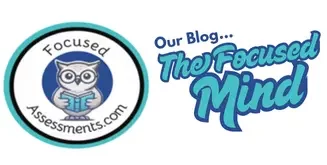Early Signs of Dyslexia and Dysgraphia Every Dallas–Fort Worth Mom Should Know
Understanding Early Language Concerns in Young Children

As a mother in the Dallas–Fort Worth area, noticing that your six-year-old is struggling with language can naturally lead to worries, especially as the new school year begins. This period is often when parents, teachers, and schools consider evaluations or reassessments to better understand a child’s learning profile.
Six is an age when children typically show marked progress in language skills such as reading, writing, and spelling. However, some children may experience challenges that require a closer look to determine whether there is an underlying learning difference. It’s normal to wonder if these difficulties are simply part of your child’s developmental pace or something more significant that might need support.
It’s essential to remember that every child develops differently, but paying attention to early signs can help you take timely action aimed at helping your child thrive both academically and emotionally.
Recognizing the Signs of Dyslexia in Six-Year-Olds
Dyslexia is a condition that primarily affects reading and language processing. At the age of six, children typically learn foundational skills such as phonics, recognizing sight words, and beginning to read simple sentences. For a child with dyslexia, these tasks may be particularly challenging.
Typical signs include difficulty blending sounds to form words, struggles with rhyming or identifying the separate sounds within words, difficulty with remembering the names and sounds of letters, and difficulty spelling words they way they sound or remembering letter sequences in common sight words. Also, speech/language issues, trouble recognizing familiar words, slow or inaccurate reading, and avoiding reading are all red flags . Frequent reversals of letters (confusing “b” and “d”) are not a concern unless they persist past the age of 8 years old.
These indicators are not just frustrations but signals that the way your child processes written language may be different. Recognizing these early on can make a significant difference in supporting their growth.
Identifying Symptoms of Dysgraphia in Early Learners
Dysgraphia affects writing abilities and fine motor skills related to putting thoughts on paper. In six-year-olds, signs might include illegible handwriting, inconsistent spacing between letters and words, difficulty forming letters, or avoidance of writing tasks. Signs of dysgraphia symptoms in younger children may look like avoidance to color or trace letters or simple shapes, slower rate of writing, and difficulty with other fine motor tasks such as using a fork , knife, or spoon.
Children might also exhibit poor spelling that does not improve with practice or display signs of fatigue and frustration when asked to write. Your son may find it challenging to organize his thoughts on the page despite understanding the content.
Understanding the signs of dysgraphia can help distinguish between simple, messy handwriting and a learning difference that requires targeted support.
Distinguishing Between Dyslexia and Dysgraphia

While both dyslexia and dysgraphia involve language difficulties, they affect different skills. Dyslexia centers on issues with reading and decoding words, whereas dysgraphia impacts writing and motor skills needed for writing.
However, some children may experience both conditions, which can compound challenges. For example, a child might read slowly due to dyslexia and also struggle to write expressively because of dysgraphia.
Recognizing the distinction helps in tailoring interventions that address your child’s specific needs, rather than applying a one-size-fits-all approach.
Common Overlapping Characteristics and Differences
It’s common for symptoms of dyslexia and dysgraphia to overlap, especially in early learners. Both may lead to academic frustration, avoidance of reading and writing activities, and a decline in confidence.
However, while dyslexia is primarily a processing issue impacting reading fluency, decoding, and spelling, dysgraphia is more about the physical act of writing and organizing thoughts. A child with dysgraphia might understand what they want to say but struggle to put it into written form.
Careful observation and professional assessment are crucial for distinguishing these nuanced differences and providing the proper support.
Timing and Age for Detection of Learning Differences
Six years old is a typical age for detecting early learning differences. By this time, children have usually been introduced to reading and writing concepts that can reveal specific difficulties.
Early identification allows access to educational strategies and resources during a critical period of cognitive development. Waiting too long to address these concerns may result in missed learning opportunities, increased frustration, and a negative impact on self-esteem.
For Dallas–Fort Worth families, the start of the school year is often an ideal moment to raise concerns or request an evaluation, ensuring that interventions can be put in place promptly.
Addressing Typical Parental Concerns About Development

Many parents wonder if their child is simply a “late bloomer” or if something more requires attention. It’s natural to hope challenges will resolve with time, but ongoing difficulties that interfere with learning should be further assessed.
You might ask yourself questions like, “Is my son lazy or unmotivated?” or “Are these normal struggles for his age?” Such thoughts can weigh heavily on parents, but understanding that learning differences are brain-based and not a reflection of effort or intelligence helps shift their perspective.
A compassionate and professional evaluation can provide clarity and peace of mind, along with actionable steps for support.
When to Consider Evaluation Versus Waiting to See Progress
If your child continues to struggle despite encouragement and practice, it’s reasonable to seek an evaluation rather than waiting to see if things improve on their own.
Some warning signs to look for include consistent difficulty with letter recognition, reading, or writing that persists over several months; frustration or anxiety related to schoolwork; and avoidance of tasks that involve language.
While some children develop skills more slowly, persistent barriers that limit progress warrant professional assessment to uncover any underlying learning differences.
Overview of the Evaluation Process for Learning Difficulties
The evaluation process typically involves several steps tailored to your child’s language and learning profile. It includes interviews with parents and teachers, observation of your child in various settings, and standardized assessments that measure reading, writing, language processing, and cognitive skills.
As an experienced evaluator working with families in the Dallas–Fort Worth area, I ensure the process is thorough yet gentle, providing a comprehensive picture of your child’s strengths and challenges.
You can expect the assessment to take place in one session, which will help avoid overwhelming your child with over-testing and subjecting them to multiple testing sessions. Our goal is to gather accurate information, but to also make sure your child is comfortable and able to demonstrate their true abilities.
What to Expect During a Professional Assessment
During the evaluation, your child will participate in interactive activities with the examiner, designed to identify specific learning processes. These might include phonological awareness tasks to examine dyslexia-related skills or fine motor tasks to assess for dysgraphia.
The environment aims to be supportive and encouraging. As a parent, you will be involved by sharing your observations and concerns, which add valuable context.
Once complete, a detailed report summarizes the findings, highlights areas that need support, and recommends next steps.
Local Resources and Support Services in the Dallas–Fort Worth Area
Dallas–Fort Worth offers a range of resources for families navigating learning differences. These include school-based accommodations under Section 504 or Individualized Education Programs (IEPs), private tutoring services specializing in dyslexia and dysgraphia, as well as community-based organizations that offer workshops and parent support groups.
Connecting with local professionals and peer networks can bring ongoing encouragement and practical advice tailored to your child’s unique needs.
If you’re interested, starting with a free initial screener can be an accessible first step toward understanding your options. You can find one here(https://potential.focusedassessments.com/unlock-potential-offer).
Types of Support Available After Diagnosis
After a diagnosis, children typically benefit from targeted interventions such as multisensory reading programs, occupational therapy focused on handwriting, or accommodations that reduce academic pressure.
Schools and therapists often collaborate with families to create individualized plans that build skills while promoting confidence.
At home, simple strategies such as structured practice, positive reinforcement, and reading together can reinforce learning in a supportive way. However, parents should not feel the burden of trying to teach their child to read and write—especially if there are concerns about dyslexia and/or dysgraphia. Partnering with an expert is the best way to ensure your child receives the specialized support needed for success.
The Impact of Dyslexia and Dysgraphia on Self-Esteem and Academic Success
Difficulties with reading or writing can affect a child’s self-esteem, leading to feelings of frustration or embarrassment. Children may begin to doubt their abilities, which can impact their motivation and overall school experience.
Early, compassionate support can mitigate these effects, empowering children to use their strengths and develop coping strategies.
It’s vital to foster an environment where challenges are understood and celebrated as just part of a unique learning journey.
Strategies to Foster Confidence and Learning at Home and School
Building confidence involves focusing on successes, offering encouragement, and celebrating progress, no matter how small. Parents can partner with teachers to ensure consistent messages of support and realistic expectations are conveyed.
Incorporating activities that make learning enjoyable, like games that develop phonemic awareness or creative art projects that improve motor skills, helps children engage positively.
Open communication within the family and with educators creates a nurturing setting where your child feels safe to express difficulties and seek help.
Taking the Next Steps Towards Help and Understanding
Recognizing early signs of dyslexia or dysgraphia is the first step toward providing practical help. Initiating an evaluation brings clarity, and access to proven support strategies follows.
Taking timely action equips your child with tools to navigate academic demands confidently and reduces unnecessary stress.
Seeking support is a sign of proactive parenting, reflecting deep care and commitment to your child’s well-being.
How to Access a Free Initial Screener and Begin the Journey to Support
For families in the Dallas–Fort Worth area who are unsure whether their child needs a comprehensive evaluation, a free initial screener is a practical starting point. This brief assessment helps identify areas of concern and decide if further evaluation is warranted.
You can easily access this service through the following link (https://potential.focusedassessments.com/unlock-potential-offer), which is designed to guide you through the initial steps toward support.
Taking this step brings peace of mind and opens doors to resources that make a meaningful difference.
Summary and Encouragement for Mothers Facing These Concerns

If you are a mother noticing language difficulties in your six-year-old as school starts, you are not alone. Many families face similar questions and emotions. Understanding the signs of dyslexia and dysgraphia and knowing when to seek evaluation offers hope and direction.
With the proper support, children with learning differences can flourish academically and emotionally. Your attentiveness and willingness to seek help are powerful foundations for your child’s success.
Practical Guidance and Reassurance from an Experienced Evaluator
As an evaluator working closely with families in the Dallas–Fort Worth area, my goal is to provide clear, compassionate guidance tailored to your specific situation. Assessments are designed to be child-friendly, and recommendations focus on both strengths and challenges.
Remember, diagnosis is a starting point—not a label. It opens pathways to personalized support and brighter academic experiences.
Links for Further Information and Trusted Advice
For reliable information on dyslexia and dysgraphia, the website Understood.org (https://www.understood.org) offers a wealth of resources specifically for parents and educators.
Locally, you may also find valuable support through school district services and community organizations specializing in learning differences.
Taking the time to learn more empowers you as a parent, enabling you to make confident decisions for your child’s future.
If you have concerns about your child’s language development, consider starting with a free initial screener to unlock potential paths forward. Visit this resource today and take the next step toward understanding and supporting your child’s unique learning needs.

Mona White is an educator and diagnostician in Denton with over 30 years of experience in Learning Disabilities Testing. As a mother of two neurodiverse sons—one with ADHD and one with Dyslexia—she brings both personal insight and professional expertise to every evaluation. Having navigated public, private, and homeschool education, Mona understands the unique challenges families face. Her approach is compassionate, thorough, and tailored to support lasting success for children and adults alike.

